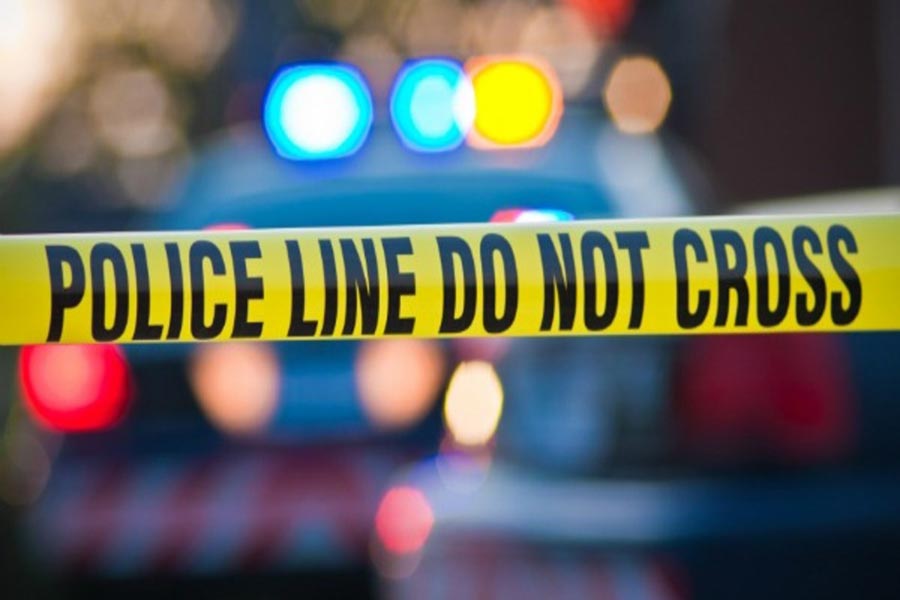Luis A. Berrios 3d says his world became a very scary place after a violent encounter with police almost five years ago left him feeling isolated and paranoid.
“I didn’t know how to live anymore,” Berrios told a federal jury this week.
But on Nov. 4, after two hours of deliberations, the all-white jury exonerated two officers allegedly responsible for Berrios’ ongoing trauma.
Officer Michael Gentile was cleared of using excessive force against Berrios and Officer Robert Tavarez was cleared of facilitating the excessive force as a bystander.
In a prepared statement, Berrios said: “This isn’t over. No wonder our youth are angry every day. They are not safe in this world.”
According to Berrios, all hell broke loose on Dec. 28, 2010, after officers entered his Hunting Park residence to quell a domestic disturbance, then realized they were dealing with a same-sex couple.
Berrios said officers beat his boyfriend with batons and pulled out his hair, hurled anti-LGBT slurs at both of them, and arrested them on trumped-up charges.
Slurs allegedly hurled by officers include “faggot,” “gay nigger,” “pussy” and “nigger-lover.” Berrios’ boyfriend had dark skin.
Berrios said his boyfriend’s blood was “all over” a police cruiser before officers removed the man and placed him inside a paddy wagon, where they continued to assault him.
“Deep in my heart, I really felt we were going to be killed,” Berrios testified. “Just because we were gay.”
Berrios said Gentile twisted and tightened his handcuffs in a manner that resulted in permanent nerve damage to his right wrist and arm.
Both officers vehemently denied causing any injuries to the men, nor using any foul language. When Gentile took the witness stand, he denied having any interaction with Berrios whatsoever.
“I had zero interaction with your client, ma’am,” Gentile repeatedly told Rania Major, an attorney for Berrios.
Berrios said he simply wanted police to take his boyfriend home. “I said, ‘Just take him home. He just needs to chill out,’” Berrios testified.
But the only response he received from Gentile was, “Shut the fuck up,” Berrios testified.
Two neighbors who witnessed the incident, Reiny Rosario and Stephanie Martinez, testified that Berrios was behaving peacefully prior to his arrest.
The women corroborated Berrios’ account of being handcuffed in a brutal manner and subjected to anti-LGBT slurs. But Martinez testified that Tavarez — not Gentile — handcuffed Berrios.
Martinez recorded the incident with a Camcorder, but said her mother destroyed the tape, fearing police retaliation.
Outside the courtroom, the women said some of the slurs from police were so offensive, they refrained from repeating them in open court.
But city attorney Jonathan K. Cooper told jurors the officers never hurled any slurs against Berrios, even when Berrios interfered with the lawful arrest of his boyfriend.
“He will not stop trying to disrupt the arrest of [his boyfriend],” Cooper told jurors. “He keeps on getting in the way.”
If foul language were used by police, that wouldn’t establish the use of excessive force, Cooper added.
“Words do not establish excessive force,” Cooper said. “Words can’t be a basis for liability. Absolutely no excessive force was used in this case.”
Complicating matters is the testimony of Officer Eric Enders, who wasn’t a defendant. Enders testified that he’s the officer who handcuffed Berrios, and he did it in a proper manner.
Tavarez corroborated Enders’ testimony. Tavarez said Berrios eluded him through a rear door of his residence, to rejoin his boyfriend out front. After Berrios appeared out front, Tavarez asked Enders to handcuff him.
Major scoffed at that version of events, noting that a barbed-wire fence would have prevented Berrios from taking such a route.
Major faulted “shabby” police paperwork filed in the case, but U.S. Magistrate Judge Lynne A. Sitarski ordered her comment stricken from the record.
Earlier in the trial, Major told jurors: “There are good and bad in every profession, I call bad police officers ‘cops.’ What we have here are cops.”
During his cross-examination of Berrios, city attorney Michael R. Miller implied that Berrios had a history of “mental-health problems,” prior to the 2010 incident.
Berrios acknowledged being depressed at times, prior to the incident. But he said the incident left him so paranoid, he barricaded his front door, booby-trapped his residence and slept with knives and other weapons.
Before the verdict was announced, Berrios, 32, said he’s slowly recovering from the trauma, with the help of friends and loved ones. He also expressed hope that his case will result in enhanced LGBT-sensitivity training for all Philadelphia police officers on an annual basis.
About 30 supporters of Berrios attended the three-day trial, from a variety of organizations including the Pennsylvania chapter of Black Lives Matter, Youth-Health Empowerment Project, Up Against the Law Legal Collective, Congreso de Latinos Unidos, GALAEI, Racial Unity and Philadelphia FIGHT.
Miller, the city attorney, expressed agreement with the verdict.
“We think the officers were in the right,” Miller told PGN. “We’re proud of Officer Gentile and Officer Tavarez. And the Philadelphia Police Department will continue to strive to serve all of its citizens, including its LGBT citizens.”
Major spoke to a juror after the verdict was announced.
“After discussions with a juror, I am beyond disbelief as to the nature of proof that would have been required to get a favorable verdict,” Major told PGN. “The jury believed Luis was verbally abused. But the law doesn’t provide relief for that. They questioned that — given everything that was going on — whether the twisting of his handcuffs actually occurred. Also, had there been an emergency-room report [about Berrios’ injuries], the verdict would have been different.”
Major said she’s not vanquished by the verdict.
“Luis, in having the strength to come forward, has lit a torch in Philadelphia that can never be extinguished. The police and everyone connected with the judicial system need to be sensitized to the issues of the LGBT community.”
